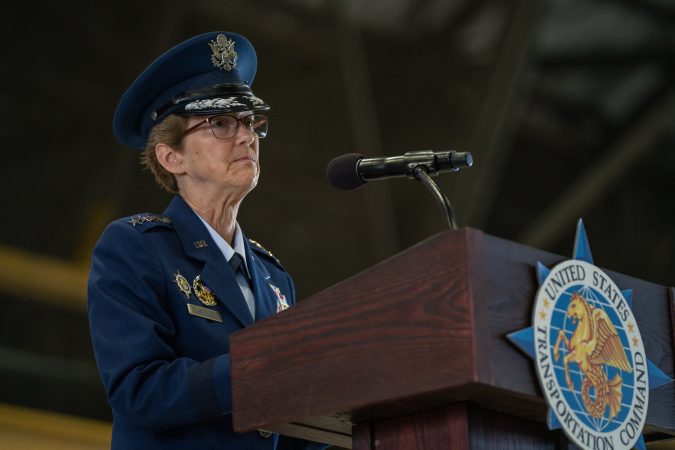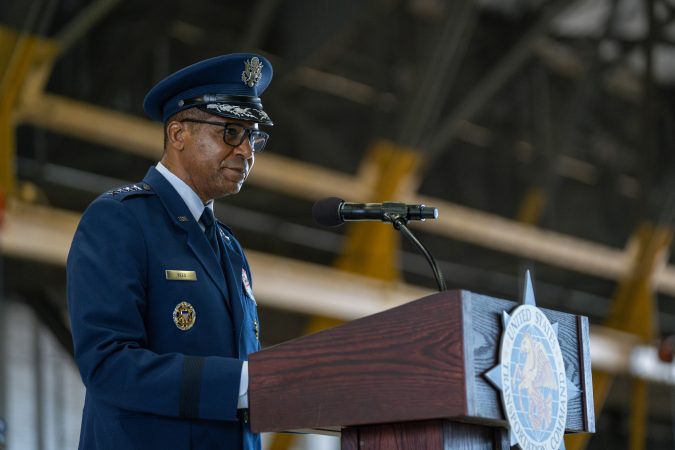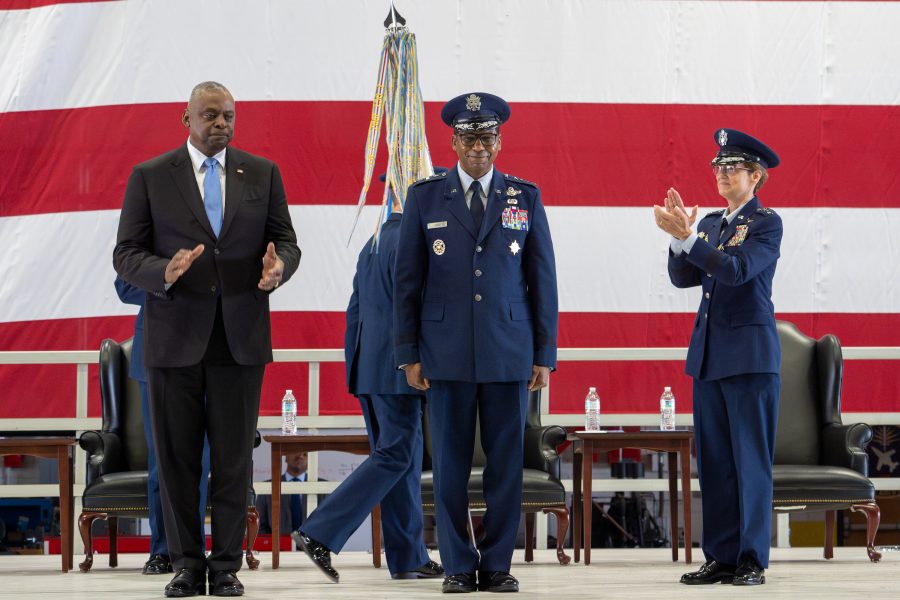Air Force Gen. Jacqueline D. Van Ovost—a trailblazer and one of the first 10 women to reach four-star rank across the U.S. military—retired and passed control of U.S. Transportation Command to Air Force Gen. Randall Reed on Oct. 4, finishing an eventful tenure at TRANSCOM.
Speaking at Scott Air Force Base, Ill., Defense Secretary Lloyd J. Austin III noted that since Van Ovost took command in late 2021, TRANSCOM:
- Delivered more than $21 billion in military aid to help Ukraine defend itself against Russia
- Rushed military aid to Israel in the wake of Hamas’ surprise Oct. 7 attack
- Dropped thousands of pounds of aid into Gaza in one of the largest humanitarian airdrops since the Berlin Airlift
“We’ve asked a lot of you over the past three and a half years, and you have delivered, and you’ve made history,” Austin said.
That string of heightened operations came just months after Operation Allies Refuge, the largest non-combatant evacuation operation airlift in U.S. history, which rescued more than 120,000 people from Afghanistan as the U.S. military withdrew in 2021. Van Ovost helped oversee that operation in her previous job as head of Air Mobility Command before taking the TRANSCOM post that October.
Beyond combat operations, TRANSCOM under Van Ovost started to implement a new global household goods contract for managing the thousands of moves service members make every year.
All the while, the command worked to prepare for great power competition with the likes of China—Austin noted the importance of exercises such as last summer’s Mobility Guardian, which involved thousands of Airmen and dozens of aircraft surging into the Indo-Pacific.
That balancing act between readiness today and future preparation was difficult, Van Ovost noted, but one her team took head on.
“You delivered on readiness, buying down risk today while providing the trusted assessments necessary to advocate for accelerated recapitalization and modernization of critical fleets, addressing manpower shortages, and reorganizing teams to address the strategic environment,” she said.

Indeed, the demands facing TRANSCOM are only growing and will make the command’s job all the more important in the years ahead, Van Ovost predicted.
“Just a few days ago, we celebrated the 37th birthday of TRANSCOM, a command that was born out of necessity, that was built to deploy U.S. forces,” she said. “Over time, our mandate has expanded to project, maneuver, and sustain the joint force at a time and place of our nation’s choosing. If we were a necessity before, we are indispensable now.”
Reed, who ascends to the job after a stint as deputy commander of Air Mobility Command, has experience flying most types in the mobility fleet—including time as a C-141 pilot like Van Ovost. And like Van Ovost, he emphasized to the service members of TRANSCOM that he aims to both modernize and stay ready for any contingency.
“Nothing will distract us from delivering, be it humanitarian aid or combat power. Make no mistake, the work we must do now to deter growing threats is serious and demands a sense of urgency,” Reed said. “Nevertheless, we will never shy away from the contested environment in any domain. Instead, we will do our part to strengthen the joint force to fight and to get to the fight and remain in the fight, to carry the day.”
Reed continues a long tradition of Air Force generals leading TRANSCOM—Army Gen. Stephen R. Lyons, who led the command from 2018 to 2021, was the only non-Airman to take the helm so far.

